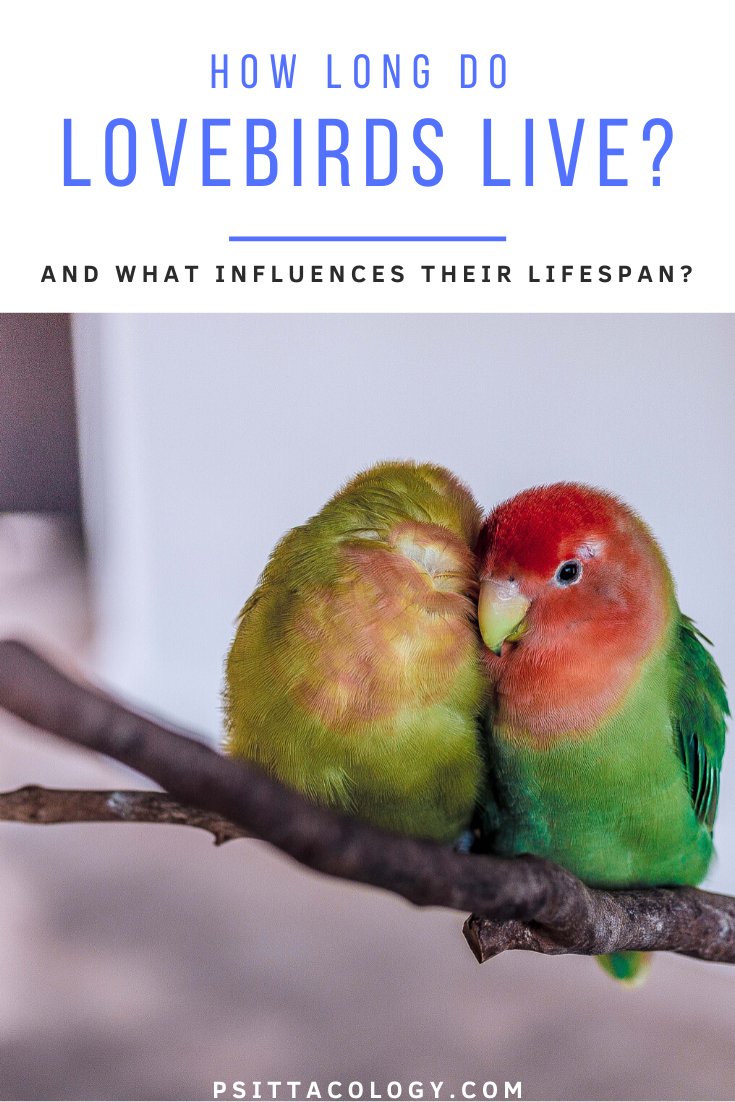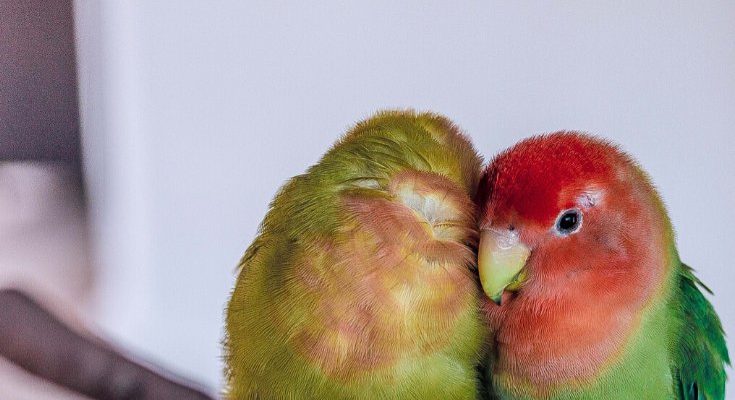
If you’ve ever wondered about the lifespan of lovebirds and what factors influence it, you’ve come to the right place. Let’s dive into the world of lovebirds—where their lifespan isn’t just a number but a reflection of how well we care for them.
Understanding Lovebird Lifespan
Lovebirds typically live between 10 to 15 years in captivity. This range can vary based on several factors, including genetics, diet, and care. It’s a lot like us humans—some folks live healthier lives and stretch into their golden years, while others may not make it as long due to various challenges.
The upper end of this lifespan tends to be achieved when lovebirds receive proper nutrition and a stress-free environment. In the wild, their lives are shorter—often due to predators and environmental hazards. But in our homes, they can flourish if given the right conditions.
As you consider bringing a lovebird into your life, it’s essential to remember that patience and commitment are key. It’s not just about keeping them; it’s about providing a nurturing home where they can thrive.
Factors That Affect Lovebird Lifespan
Several critical factors contribute to how long your lovebird may live. Let’s break down these aspects for clarity:
Genetics
Just like in people, genetics play a major role in determining a lovebird’s lifespan. Some lovebird breeds, like the Peach-faced lovebird, are known for their longer lifespans compared to others. When choosing a lovebird, think of it like picking a car—you want a model known for its longevity and reliability.
Nutrition
Providing a balanced diet is crucial. Lovebirds need a mix of seeds, pellets, fresh fruits, and vegetables. Think of their diet as a buffet; the more variety, the better! Feeding them the right foods can help prevent health issues and boost their immune system, leading to a longer, happier life.
Environment and Care
The environment where your lovebird lives significantly impacts its lifespan. A spacious cage with toys for stimulation can keep them active and mentally healthy. Additionally, regular social interaction can also contribute to their happiness. Just like us, lovebirds thrive on social connections!
Common Health Issues That Affect Lifespan
Just like any pet, lovebirds can face health challenges. Understanding these common issues can help you provide better care.
Obesity
One of the most prevalent issues in pet lovebirds is obesity. It often stems from an unbalanced diet or lack of exercise. Keeping an eye on their weight and providing opportunities for play can help avoid this.
Respiratory Diseases
Lovebirds are prone to respiratory problems, which can cut their lifespan short. Poor air quality, such as exposure to cigarette smoke or fumes, can exacerbate these issues. Ensuring good ventilation and a clean living space is critical.
Heart Diseases
Heart conditions can also affect lovebirds. Signs of heart issues might include lethargy or labored breathing. Regular vet check-ups can help catch problems early, providing your feathered friend a better chance at a longer life.
Creating a Healthy Environment
Creating a conducive environment for your lovebird is not just about the basics; it’s about creating a happy home.
Space and Cage Setup
Choose a cage that allows for flight and play. A spacious cage is essential for lovebirds, allowing them to stretch their wings and engage in playful activities.
Toys and Stimulation
Incorporate a variety of toys—chewing toys, climbing structures, and puzzles to keep them entertained. Think of toys as their version of a fun playground! Regularly rotate these to keep their interest piqued.
Social Interaction
Lovebirds are social creatures, and they thrive on companionship. Spend time with them daily for playtime or just talking. If you’re busy, consider getting a second lovebird so they can keep each other company.
Proper Nutrition for Longevity
A well-rounded diet is essential for extending your lovebird’s lifespan. Here’s how you can ensure they get what they need:
Seed and Pellet Mix
Start with a high-quality mix of seeds and pellets. Pellets provide the necessary nutrients that seeds alone may lack. It’s a good balance that allows for a healthy diet.
Fresh Foods
Incorporate fresh fruits and vegetables like kale, carrots, and apples into their diet. These foods are packed with vitamins and can help their immune system. Just remember to wash and chop them into manageable pieces!
Fresh Water
Never forget that lovebirds need fresh water every day! Change their water regularly to ensure it’s clean. You wouldn’t want to drink stale water, right? The same goes for them!
The Importance of Regular Veterinary Care
Regular vet visits are essential for your lovebird’s health. Here’s why:
Preventative Health Checks
Routine check-ups help catch any potential problems before they become serious. Just like how we go for annual check-ups, your lovebird deserves the same care.
Vaccinations and Treatments
Your vet can provide necessary vaccinations and treatments for common ailments. This guidance is crucial for ensuring your lovebird lives a long, healthy life.
Emergency Preparedness
If your lovebird shows signs of distress—like difficulty breathing or unusual behavior—don’t hesitate to seek help. Being proactive can be a game-changer for their health.
In conclusion, the average lifespan of lovebirds in captivity ranges from 10 to 15 years, but it ultimately depends on the care you provide. From ensuring a balanced diet to creating a stimulating environment, every small action helps contribute to their longevity. Remember, lovebirds thrive on love and attention. Treat them as part of your family, and they’ll reward you with years of companionship.
Whether you’re considering getting a lovebird or looking for ways to improve your current pet’s quality of life, knowing what influences their lifespan can make all the difference. So grab that birdseed, create a cozy home, and enjoy the joyful chirping that fills the air—you’re in for a delightful journey with your feathered friend!

